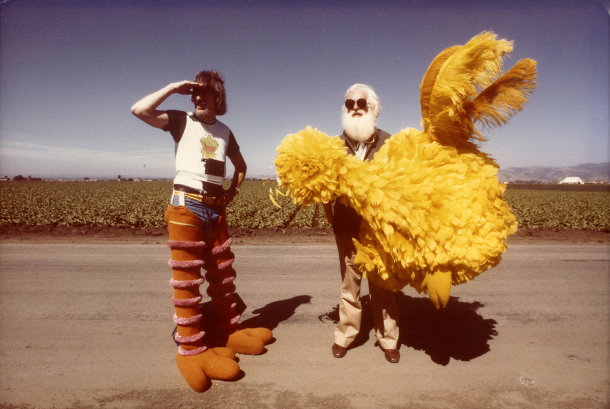The Coward (1970) and The Holy Man (1965)
Editor’s Notes: The following review is part of our coverage for TIFF’s The Sun and the Moon: The Films of Satyajit Ray. For more information on upcoming TIFF film series visit http://tiff.net and follow TIFF on Twitter at @TIFF_NET.
A double feature of contrasts and the multihued shades of human emotions, The Coward and The Holy Man work in asymmetrical congruence to show the range of Satyajit Ray’s abilities. The Coward works in underplayed emotions and restraint to show a protagonist haunted by past decisions and missed opportunities while The Holy Man follows an outspoken charlatan as he uses empty hand gestures and outrageous lies to dupe others into believing his nonsense. Both films are based on short stories, and with their taut runtimes and concentrated focus they are left with little wiggle room to traverse the spaces and elements of societal repression that silently clamps down on the small cast of characters and influences their actions and ignoble deeds. Pragmatic concerns drive the actions of the characters in The Coward as they sacrifice romantic love and artistic aspirations to satisfy their immediate needs, while the P.T. Barnum-esque charlatan of The Holy Man sells the intangible wares of spirituality to meet those same ends.
The Coward and The Holy Man work in asymmetrical congruence to show the range of Satyajit Ray’s abilities.
The Coward kicks things off in an automotive repair shop, dripping in a film-noir aesthetic as shadows and smoke stain surfaces in midnight black while raindrops plays jazz backbeats against the windshields of weary travelers. A young screenplay writer with an easy smile and uncorrupted romantic optimism seeks life experiences on the road, but instead of uncharted territories and fascinating new characters he finds himself in direct confrontation with his past as he encounters an old love married to a crass tea plantation owner. Their missed opportunities and past decisions can never be undone despite the young screenwriter’s undying passion as he revisits memories both cherished and painful, and life usually doesn’t resolve itself like tidy conventional narratives where the handsome, naive idealist wins his love back from the clutches of an old, fat reactionary.
 The Holy Man isn’t steeped in the same brooding emotions and noir aesthetics as The Coward, instead illuminating the titular holy man in overexposed whites as he travels from town to town in the comfort of a railroad car, peddling his dubious spiritual wares to the eager masses. He uses showman tricks and silly hand gestures, rotating his pinky fingers in opposite directions to emulate the unceasing passage of time as it stretches out to infinity both forward and backward without ever stopping in the non-existent present. Rather than contemplate the significance of a non-existent “now”, acolytes spend hours attempting to master the difficult hand gesture as the empty ritual becomes more important than the idea that it is supposed to represent. Such as it is with many of the precepts that hold the power to manipulate our thoughts and actions without consideration of the overarching implications, we’re so used to playing out the farce that we forgot why we started playing in the first place.
The Holy Man isn’t steeped in the same brooding emotions and noir aesthetics as The Coward, instead illuminating the titular holy man in overexposed whites as he travels from town to town in the comfort of a railroad car, peddling his dubious spiritual wares to the eager masses. He uses showman tricks and silly hand gestures, rotating his pinky fingers in opposite directions to emulate the unceasing passage of time as it stretches out to infinity both forward and backward without ever stopping in the non-existent present. Rather than contemplate the significance of a non-existent “now”, acolytes spend hours attempting to master the difficult hand gesture as the empty ritual becomes more important than the idea that it is supposed to represent. Such as it is with many of the precepts that hold the power to manipulate our thoughts and actions without consideration of the overarching implications, we’re so used to playing out the farce that we forgot why we started playing in the first place.
Like two sides of the same coin, The Coward and The Holy Man are very different in tone and content but both explore man’s capacity for ignoble deeds and the silent forces that drive those decisions.
Like two sides of the same coin, The Coward and The Holy Man are very different in tone and content but both explore man’s capacity for ignoble deeds and the silent forces that drive those decisions. While The Coward is rooted in darkness, pain, and regret The Holy Man is bathed in artificial light as artificial men sell lies and empty promises of soul satiation.



